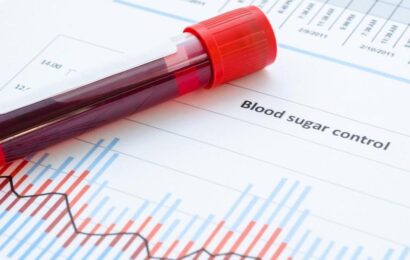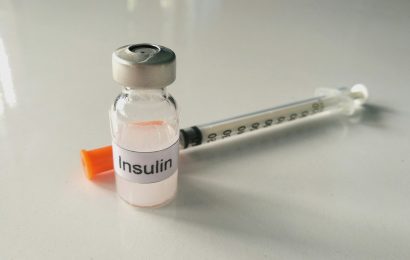The subject of kidney disease is one that many people would prefer not to think about. However, March is National Kidney Month, so it’s as good a time as any to focus on some facts about this debilitating disease and, most importantly, to take steps to prevent it from happening to you.
1. What is chronic kidney disease?
Chronic kidney disease (CKD) is a progressive loss in kidney function over a period of months or years. Damage to the kidneys means that your kidneys can’t do their job and, as a result, you can become very sick. Without proper treatment, which may include dialysis, you may go into kidney failure, which can be life threatening.
2. Who gets CKD?
According to the National Kidney Foundation, 30 million Americans are estimated to have CKD. While this condition can affect anyone at any age, it’s more common in African-Americans, Hispanics, Native Americans, and South Asians (people from India, Bangladesh, Sri Lanka, or Pakistan), and people age 60 and older. Also, women are more likely to have CKD than men.
3. What causes CKD?
There are several factors that can lead to CKD, but the two heavy hitters are diabetes and high blood pressure. These two conditions make up for two-thirds of all CKD cases. Perhaps somewhat ironically, people with diabetes are more likely to have high blood pressure and kidney disease than people without diabetes. There are other conditions that can lead to CKD, as well. These include glomerulonephritis, a condition that includes inflammation and damage to the kidneys; lupus, a type of autoimmune disease; polycystic kidney disease; kidney stones; kidney tumors; frequent urinary tract infections; and malformations of the kidneys.
4. What are signs and symptoms of CKD?
In the early stages of CKD, you may not have any symptoms. On the other hand, some people notice that they:
• Feel more tired and lack energy
• Have a poor appetite
• Have trouble concentrating
• Have trouble sleeping
• Have dry, itchy skin
• Have swollen feet and ankles
• Have muscle cramping
• Need to urinate more than usual
• Have pink or dark urine
5. What are the tests used to diagnose CKD?
Both blood and urine tests are used to check for kidney disease. One of the tests measures creatinine, a waste product made by the muscles and excreted by the kidneys. Levels of creatinine can build up in the blood if the kidneys aren’t working as well as they should. Your kidney function can be measured by an equation called the glomerular filtration rate, or GFR. This tells your doctor how well your kidneys are working. Another simple test is the urine microalbumin, or albumin-to-creatinine ratio. This test indicates if there is any protein in the urine. Talk to your doctor about what tests you need to check for kidney disease and make sure you ask about your results.
6. How is CKD treated?
Like diabetes, there is no cure for CKD, but treatments are available. In the early stages of this disease, medication and changes in your diet are often needed. If CKD progresses and your kidneys start to fail, you will likely need dialysis to remove wastes and excess fluid from the body. A kidney transplant may also be an option for some people.
7. What is the diet for CKD?
Again, similar to diabetes, there is no one diet for CKD. What and how much you eat may depend on how well your kidney disease is managed and on what stage of kidney disease you’re at. However, most people do need to make some dietary changes, especially in terms of how much sodium (salt) they eat. You may also need to cut back on how much potassium and phosphorous you consume, as well.
8. Is a low-protein diet needed to manage CKD?
Until fairly recently, doctors often recommended that people with CKD cut back on protein in the diet. Too much protein from, say, meat, chicken, or fish was thought to lead to waste build-up in the blood. However, newer research indicates that while you still may need to watch how much protein you eat, following a low-protein diet isn’t necessary and, in some cases, could lead to malnutrition. If you have CKD, it’s important to talk with your doctor and meet with a dietitian who specializes in kidney disease to learn about the best diet for you.
9. Is it safe to take herbal supplements if you have CKD?
It’s very important to talk with your doctor about any supplements you are taking or thinking about taking. Some supplements can be harmful to your kidneys and should be avoided. These include creatine (not to be confused with creatinine), licorice root, barberry, yohimbe, and astragalus. Other supplements, such as bitter melon, American ginseng, feverfew, and evening primrose, contain potassium. And some supplements contain phosphorous, including American ginseng, feverfew, and milk thistle. It can be very dangerous to take these supplements, so always talk with your doctor before you take any kind of supplement.
10. Can CKD be prevented?
While there are no guarantees that you won’t ever get CKD, you can definitely take steps to prevent it. If you have diabetes, focus on managing your blood sugars and A1C levels. Everyone, especially those who are at higher risk for CKD, should aim to keep their blood pressure and cholesterol levels in a safe range. Reaching and staying at a healthy weight and stopping smoking are also important steps to take. Finally, talk with your health-care team about CKD, including your risk factors, screening tests, and specific things that you can do to lower your risk.
Want to learn more about diabetes and kidney disease? Read “Kidney Disease: Your Seven-Step Plan for Prevention” and “Protecting Your Kidneys.”





